By TIO Staff
HAVING A VOICE IN THE INTERFAITH AGENDA

The Council for a Parliament of the World’s Religions has launched a Global Listening Campaign in preparation of upcoming Parliament activities. It hopes to have more than 100 groups of 8-12 people to gather in discussion and respond to 11 questions about the state of the world and how the global faith/interfaith community should respond.
TIO is holding its own listening campaign to help get the dialogue going. We don’t have the space to address all 11 questions. So instead we have focused on two of them:
What are the most important challenges where you live, and what can your local religious/spiritual/ethical communities do to address them?
Similarly, what do you take to be the most important challenges facing humankind globally, and what can the world’s religious/spiritual/ethical communities do to meet those challenges?
Ten interfaith activists were contacted and have responded, in brief, to these tough questions. Some of our responders merged the two questions, others kept them apart. Notice the patterns that emerge in their answers.
You are encouraged to organize your own Parliament Listening Campaign event. Go to the Campaign’s website for instructions and download the Listening Campaign kit.
* * *
Despina Namwembe, Kampala, Uganda
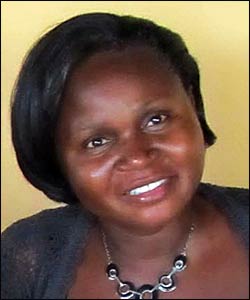
The local challenges in our community mostly are issues to do with governance at many different levels, governance which is not people-centered but privately-centered. The issues that make people suffer – for example, human rights abuse, poverty, unemployment, gender disparities, and conflict – can best be addressed through governance which is aimed at addressing people’s wishes and aspirations.
Religious groups should make a difference. Unlike some countries, in Uganda religious communities command a lot of credibility and respect. They simply have to work together and not compete against each other in advocating for the plight of those whose voices can’t be heard by government leaders, high or low.
Globally, the issues high on my agenda are religious extremism, global warming, and financial crises. World religious/spiritual communities are blessed with having stable structures, organizational capacity, and a constituency of followers. As at the local level, they need to learn to work together on issues that affect people irrespective of their religious/spiritual affiliation. In other words, they need to put their faith into action, since their various faiths all call for love and respect for human lives without discrimination.
Rabbi Justus Baird, New York City
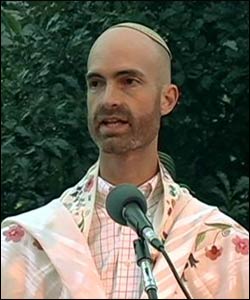
The American philosopher Thomas Nagel once admitted that he did not know if it was more important to understand the world, or to change it.
After many years of reflection, I believe it is more important to change it. To be precise: understanding things is in service of improving things. Jewish tradition challenges me to be a builder, a partner of the Creator. We are seven billion tiny little half-divine vessels of lifeforce working on an unfinished, imperfect world.
What is our greatest challenge? Here are my candidates: Ambivalence. Ignoring our call. Revering the minute differences in our DNA, rather than the massive similarities. Fear of ___. Confusing success with meaning, habit with tradition, and change with improvement. Pretending actions don’t have consequences. And insecurity. We who embrace traditions of wisdom, faith, and being must find voices from the past that speak to the challenges of today. Only our collective will, inspired by the stories chronicled in these traditions, has the capacity to take on a great challenge.
Kay Lindahl, Long Beach, California
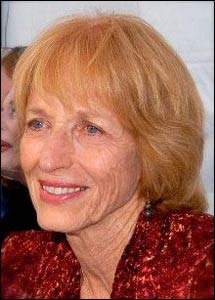
The challenges in our community are much like those in many communities: homelessness, hunger, poverty; the impact of economic inequalities, unemployment, minimum wages; human trafficking, violence, cost of health care, cost of child care, quality of education, impacts of climate change, immigration. The list goes on and on. The religious, spiritual, and ethical communities are already addressing the specifics of these issues in many ways, and yet there is always more we could do and more concerns emerging.
One large issue is not so obvious – and it has to do with relationships and trust, which are at the core of all community. As public conversation has become more and more polarized, underlying emotions of scarcity, fear, and anger have become louder. It is hard to find common ground in this environment. Yet until we learn how to talk with each other, our effort to make a lasting impact on these matters is limited.
The preeminent opportunity for religious, spiritual, and ethical communities is to expand our capacity to bring people together, in a safe space, where we can have these difficult conversations. We would be wise to partner not only with those who are facing the challenges mentioned above, but also with those who have differing views on how to move forward. We need to partner with business, government, non-profits, health professionals, educators, scientists. Each of us has a part to play in making our communities great.
There is an urgency for us to act now, as these local issues apply even more so for our global community. We have been thinking too small, often talking to the same people over and over again. We have much to offer and a great deal to learn from interacting with all stakeholders.
Laleh Bakhtiar, Ph.D., Chicago
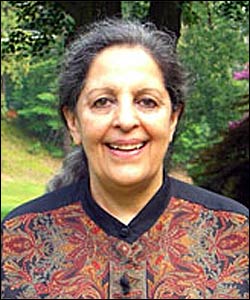
The greatest challenge facing Muslims in my community is the threat of Muslim extremism as they close their eyes to any past Islamic culture and civilization. The best way to confront this is to put emphasis on Islamic culture and civilization, the great scholars and thinkers and their works.
The greatest challenge facing humankind globally is the environmental issue. It is up to the religious/spiritual/ethical communities to speak out against all issues that affect it.
Marites Africa, Manila, Philippines
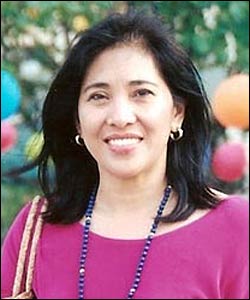
We at The Peacemakers Circle in Metro Manila face many difficult challenges in our endeavors to build bridges of mutual respect, understanding, and cooperation between Muslims and Christians in grassroots communities. One of the main causes of this difficulty is the fear and mistrust that Christians have of Muslims and Muslims have of Christians, resulting from the decades-long armed conflict between the Moro Islamic Liberation Front (MILF) and government troops in Mindanao, the southern region of the Philippines. The 9/11 attacks on the United States in 2001 and the recent outbreaks of violence in the Arab world have only exacerbated this fear of Muslims among Christians in our parts of the world.
Interfaith dialogue in its various forms – particularly dialogue of life and action – is experienced by interfaith peacebuilders here as essential to healing relationships and building bridges of peace and reconciliation among peoples of diverse cultures and beliefs. Dialogue calls for the ability to listen to “the other” with compassion, openness, and understanding, and responding even to words unsaid with mindfulness and respect. But, for interfaith dialogue to succeed, intrafaith dialogue – or dialogue within religions – is necessary.
Deepening the Journey Cooperation Circle/Kay Markham, San Francisco
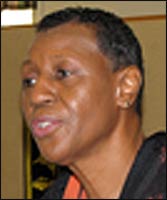
This group is made up of United Religion Initiative global support staff. Kay Markham made the following report on their behalf.
The great challenges?
- Addressing the environmental crisis that poses such a powerful threat to the future and offers an invitation to a saner, healthier, lighter way to living on Earth.
- Creating positive, lived experiences of our common humanity, in all its diverse expressions, both for their own sake and as an antidote to the hatred, distrust, and negative stereotyping that divide and damage.
- The most important challenge for humanity is mobilizing and accelerating courage and optimism that we as a people can meet the challenges we are all facing with creative, innovative and spiritually rooted solutions and practices.
People the world over are meeting interreligious conflicts, violence, environmental degradation, poverty, human rights violations, and more with increasing numbers of ordinary citizens cooperating and taking action.
The next Parliament gathering might bring together the best and brightest solutions and innovations making a difference. Creative solutions are happening all over the world in myriad ways. It is about know how and the spiritual vitality and capacity to bond together as a human family to applaud and help one another find myriad solutions to myriad problems that beset our planet.
Taylor Jensen, Provo, Utah
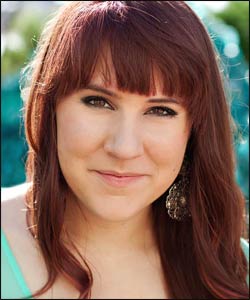
I live in a Mormon college town. It is a unique situation in which most people are Latter-Day Saints and there is a silent (sometimes not silent) understanding among everyone as to the “right” way to live. As Latter-Day Saints we are taught to be kind, loving, and tolerant of all people. But, despite these teachings, it becomes increasingly difficult to not judge others when they are acting out against what is culturally acceptable. Poverty, addiction to harmful substances, and depression still thrive in a community where people are pressured to always appear productive, happy, and healthy. Ultimately it is a problem of mass pressure to conform, rampant judgment of others, and comparing yourself negatively to others. A bad mix. It becomes difficult to take the time to really love others and to love yourself when the pressure is so intense to be “good” all the time. Local spiritual leaders can remedy this problem by leading their congregations to live in unity, love, and understanding of others, where tolerance and diversity is encouraged, so individuals can thrive and the helpless find relief.
The inaccessibility of vital resources, blind hatred, and ignorance are the most important challenges currently facing humanity. When a person’s essential physical needs are not being provided for, they cannot nourish their spirits. So it is vital for religious leaders to see to the physical welfare of each person in their community, and then see to feeding them spiritually. Another important task of a spiritual leader is to dispel ignorance and blind hatred. Too many communities are enveloped in negative traditions of animosity toward particular races, religions, or toward women. Doctrine is being confused with tradition and the consequences have been detrimental. For instance, women across the globe are paid less, enslaved more, and rarely educated, and at times this is even encouraged by religious leaders. Such abuse creates a worldwide handicap for us all. Religious and ethical leaders around the world must lead in turning this around. To work toward physical health and safety and then to teach love and equality for all races, religions, and genders could drastically change the state of the world.
Rev. Heng Sure, Berkeley, California
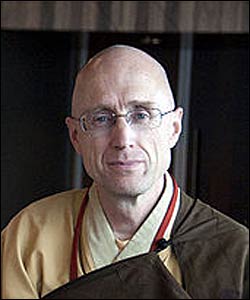
Where I live, in Berkeley, California, the most important challenge is finding a compelling reason to prefer interaction with flesh and blood humans over virtual connections online. Human relationships are rapidly fading in importance in the lives of young people I know, compared to their relationships on Facebook and other virtual communities. Humanity traditionally relied on our kin in order to eat, survive weather changes, and respond adequately to deaths, births, invasions, and crop failures. We interacted with the natural world every day, and skillful knowledge about responding appropriately to Nature’s moods and bringing food out of the ground was the most important survival skill. Only later was the ability to read and count considered a valuable skill. Print literacy has now been largely abandoned as a survival skill. We have no precedent, no roadmap for the territory we have entered as a culture. Traditional organized religions offer no tools to deal with the brokenness and alienation faced by young people who see no models to emulate and no values beyond immediate sensual experience worth pursuing. Theirs is truly a brave, uncharted new world.
Religions come into being when a community of people join together in practice around a set of values that serve their needs and strengthen their common bonds. Mainstream faiths in Berkeley, California, once served by interfaith structures such as the Parliament of World Religions, no longer come together because of that community or those values. We are rapidly losing touch with generational connections that used to be the core of religious structures. I’m not optimistic about future generations reverting backwards away from advances in technology that separate us or abandoning our march away from daily human interaction towards a new nexus of connection with nuclear families or church parishes. For that to happen there would have to be images in videos, films, and social media that espoused the values of organized religion.
Vanessa Gomez Brake, Oakland, California
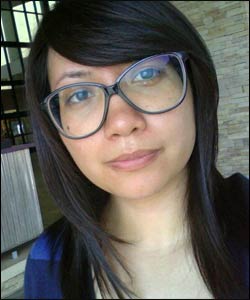
As a resident of Oakland, some of the most pressing challenges my neighborhood faces revolve around poverty – homelessness, hunger, and other conditions related to the extremes of economic disparity. For example, if you walk two blocks east of my home, you find a Whole Foods market. Walk north or south and you run into more liquor stores than you can count on one hand. Walk west and you find a food ‘desert.’
Religious, ethical communities and organizations I’m involved with in the Bay Area engage at various levels to help alleviate this suffering. Interfaith Councils in San Francisco and Contra Costa Counties provide winter shelters. Houses of worship offer their kitchens to groups like Food Not Bombs, so meals can be prepared and served to those of need in the neighborhood. Faith Network of the East Bay has an urban school adoption program engaging faith communities. The list goes on and on, with engaged people making a difference who give me hope.
The most important challenges facing humankind globally concern out relations with one another and the Earth. Our inability to exercise the Golden Rule or expand our locus of concern for others translates to the continued detriment of our planet. If we cannot be good to each other, it is likely we’ll never get around to being good to our planet.
Community engagement can make things better by creating opportunities to learn from, connect with, and serve our greater community. Educational, people-to-people, and service-oriented events are all ways to live the Golden Rule. If a community sponsors such activities often enough, they begin to create a culture of connectedness and service. It is through such a culture that we will take better care of our neighbors and the globe. It’s a large task but a necessary one. I am hopeful when I see how many good folks are devoted to undertaking this important work.
Chris Fici, New York City
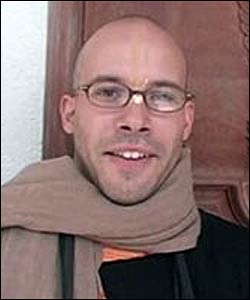
A certain kind of interfaith bubble exists in New York City, where we have the grace to understand each other’s faith in ways that might not be expected or assumed in other parts of the globe. One of greatest challenges is not to take our graceful ease of communication between faith traditions for granted. The twenty-first century is a time in which spiritual communication has reached unprecedented levels of relevance and importance. Now, more than ever, peoples of faith need to be of service in helping to define the parameters of personal spiritual health, the substance of our community, and the foundations of our civilization.
Nowhere is this more important than in relation to our existential ecological crisis. This crisis is the fundamental spiritual/social justice issue of our time. This crisis relates directly/indirectly to every injustice on our planet. The global movement to help arrest this crisis cannot reach its full potential without having a spiritual foundation. All peoples of faith, in conjunction and in service to all peoples of concern, must create an upwelling of wisdom from our traditions and from our bodies, minds, and hearts, which is the antidote to the hopelessness and cynicism that prevents us from truly healing the planet.
